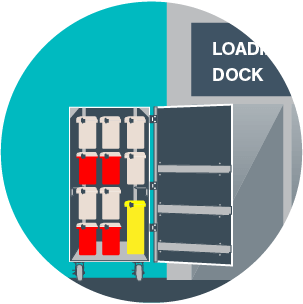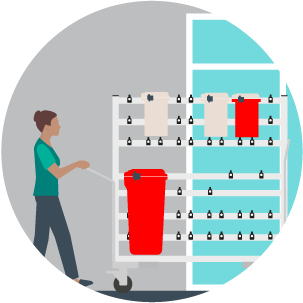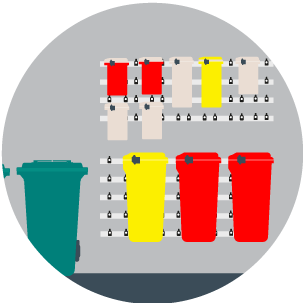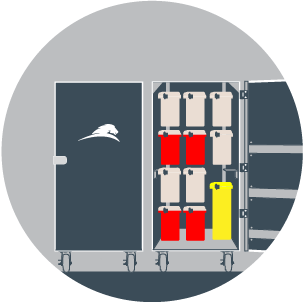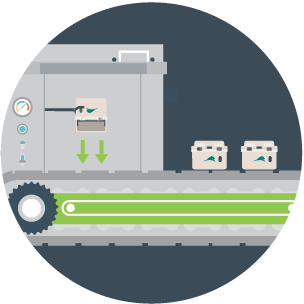When we first set out to create a ‘safe’ sharps container, little did we know the journey we were about to embark upon. What we would learn over ten years of clinical trials and research, extensive design R&D, microbiological testing, 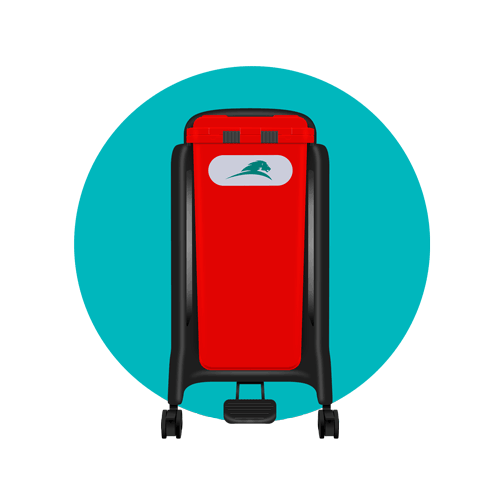 and movement mapping, was that the solution to safety and risk prevention in sharps disposal was not solely “a container”, it was so much bigger than that.
and movement mapping, was that the solution to safety and risk prevention in sharps disposal was not solely “a container”, it was so much bigger than that.
Let’s fast forward 32 years, and what you see supporting this “container” is a range of over 50 engineered mounting and movement accessories designed for risk reduction and efficiency, over 5 peer reviewed journal papers indisputably proving the superiority of design and process, multi-million dollar robotic machinery supporting a bacterial-load reduction washing process that is globally unrivalled, proprietary cleaning liquids that are environmentally balanced and free from harmful chemicals, comprehensive waste segregation strategies, and bulk-transport solutions that uphold the same safety and infection-prevention imperatives whether in a patient ward, on trucks, or at the back of a loading dock. The Sharpsmart container is just the tip of the Daniels iceberg…
So let’s explore a potential container journey within an inner city hospital….

